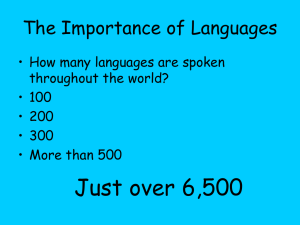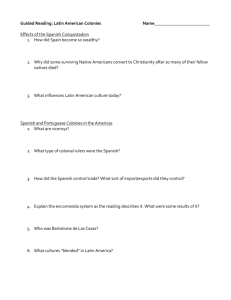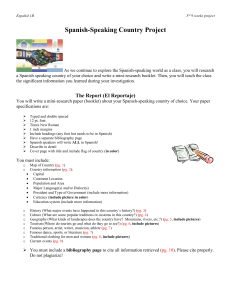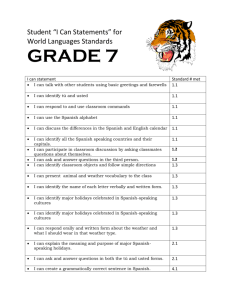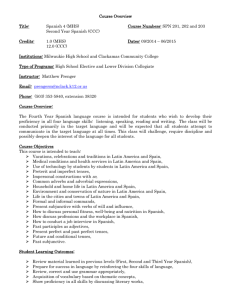Which Language? French, German, Spanish, or Latin?
advertisement
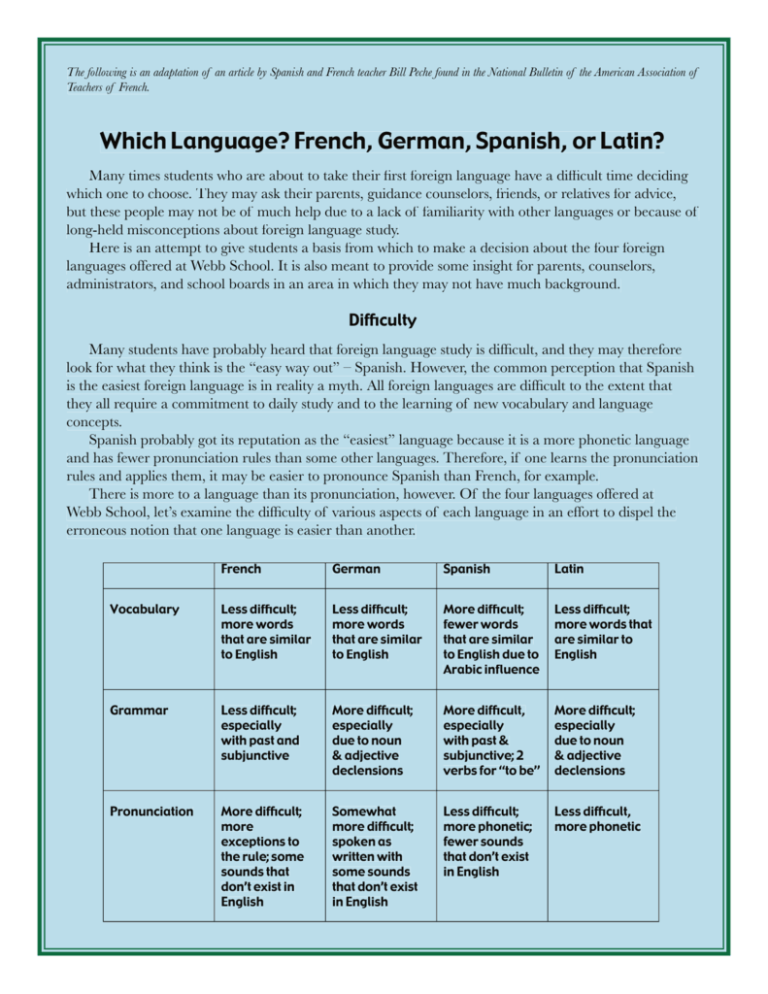
The following is an adaptation of an article by Spanish and French teacher Bill Peche found in the National Bulletin of the American Association of Teachers of French. Which Language? French, German, Spanish, or Latin? Many times students who are about to take their first foreign language have a difficult time deciding which one to choose. They may ask their parents, guidance counselors, friends, or relatives for advice, but these people may not be of much help due to a lack of familiarity with other languages or because of long-held misconceptions about foreign language study. Here is an attempt to give students a basis from which to make a decision about the four foreign languages offered at Webb School. It is also meant to provide some insight for parents, counselors, administrators, and school boards in an area in which they may not have much background. Difficulty Many students have probably heard that foreign language study is difficult, and they may therefore look for what they think is the “easy way out” – Spanish. However, the common perception that Spanish is the easiest foreign language is in reality a myth. All foreign languages are difficult to the extent that they all require a commitment to daily study and to the learning of new vocabulary and language concepts. Spanish probably got its reputation as the “easiest” language because it is a more phonetic language and has fewer pronunciation rules than some other languages. Therefore, if one learns the pronunciation rules and applies them, it may be easier to pronounce Spanish than French, for example. There is more to a language than its pronunciation, however. Of the four languages offered at Webb School, let’s examine the difficulty of various aspects of each language in an effort to dispel the erroneous notion that one language is easier than another. French German Spanish Latin Vocabulary Less difficult; more words that are similar to English Less difficult; more words that are similar to English More difficult; fewer words that are similar to English due to Arabic influence Less difficult; more words that are similar to English Grammar Less difficult; especially with past and subjunctive More difficult; especially due to noun & adjective declensions More difficult, especially with past & subjunctive; 2 verbs for “to be” More difficult; especially due to noun & adjective declensions Pronunciation More difficult; more exceptions to the rule; some sounds that don’t exist in English Somewhat more difficult; spoken as written with some sounds that don’t exist in English Less difficult; more phonetic; fewer sounds that don’t exist in English Less difficult, more phonetic Other Considerations From the above chart, it is apparent that a language should be chosen for reasons other than difficulty. In so doing, many times the choice is made based on the perception that a large percentage of the U.S. population speaks Spanish. Although it is true that many people speak Spanish in our country, Spanish may not be the most suitable language to study if the student does not choose a career in which he/she will interact with Spanish-speaking people, does not yet know what career to pursue, or does not expect to reside in an area with a large Hispanic presence. Consequently, the following should also be kept in mind: 1. Student Interest If a student is interested in taking one language, for whatever reason, that is probably the best language for him/her to take. Students who are made to take a language other than their “preferred” language tend to do less well in the language chosen for them. 2. Career Plans All four languages are good for the global economy in which we live. For example, France, Germany and Mexico rank among the top importers of American goods and services. Banking and telecommunications companies are most likely to expect prospective employees to understand international affairs; investment banking and agricultural enterprises most often indicate an interest in second-language abilities. French and German are also important in such fields as medicine, science, psychology, and the arts. Latin continues to serve as a basis for a common international legal and scientific language. Spanish is also important if career plans include working in healthcare, banking, law enforcement, manufacturing, etc., in vicinities with a large Spanish-speaking population. 3. Cultural Awareness Although all four languages provide students with a broader cultural perspective, French language/culture has probably had a bigger influence on art and cuisine, while German language/ culture has probably had a bigger influence on music. Since English is a Germanic language, German helps with the study of Shakespeare and older English works. In contrast, there is a higher probability of finding French words used in contemporary English-language writings. The study of Latin is the study of Roman and Greek Civilization – the foundations on which all Western societies are based. 4. Cultural Heritage Many students choose a foreign language based on their ethnic background. Students who live in homes where a language other than English is spoken or whose grandparents or other relatives speak a foreign language should certainly consider studying that language. It should be noted that simply being able to speak or understand the language does not necessarily mean that one is able to read or write it. 5. World Travel Of course, travel to French-, German- and Spanish-speaking lands is greatly facilitated by knowing the respective languages of these countries. But what if one goes to a country where these languages are not spoken? Latin students have found that they can read their way through many Romance language countries, and any second language knowledge increases likelihood of communicating with non-English speakers.


